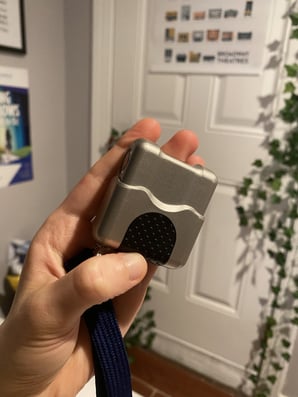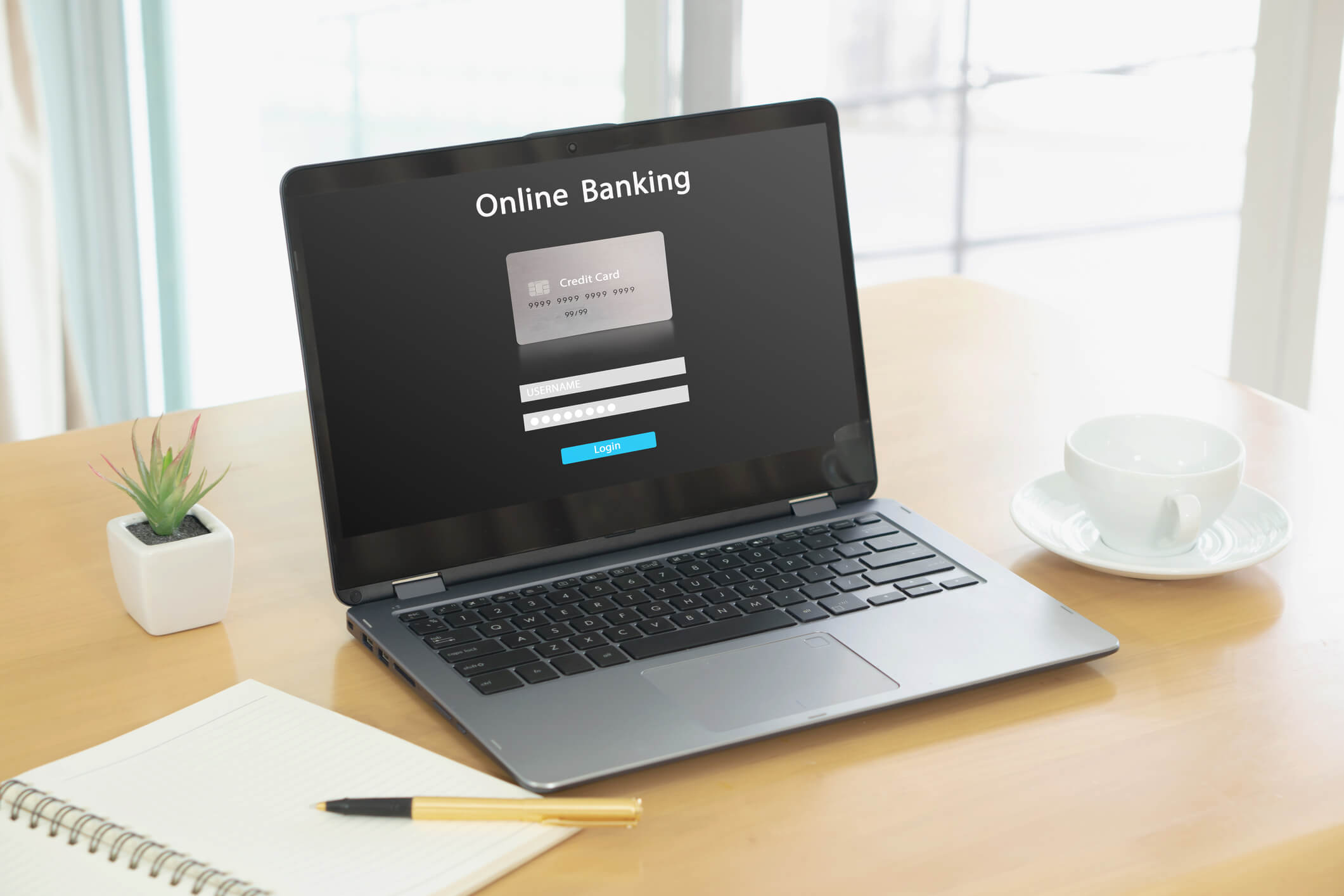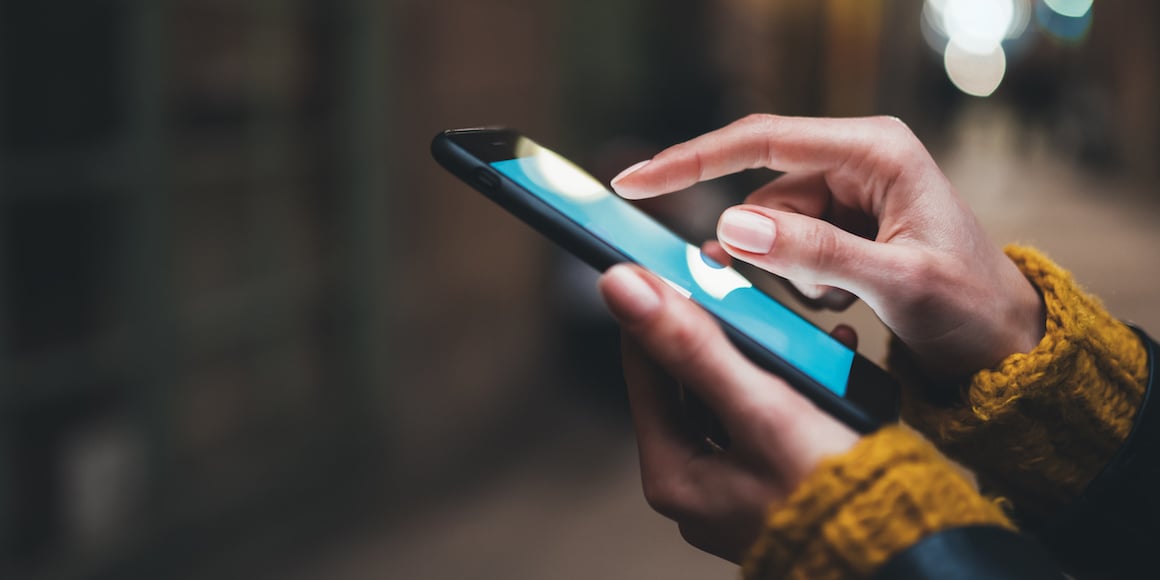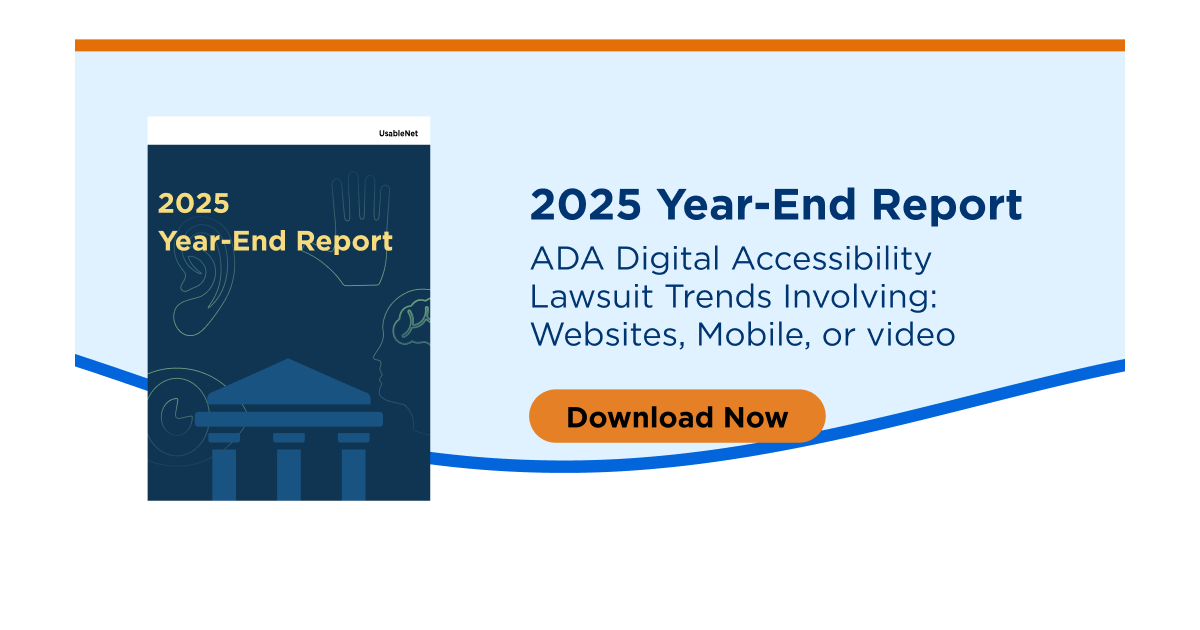I remember the beginning of quarantine season clearly. It was March 9th of last year, another busy Monday for me as a Fordham University student in NYC. I walked out of my philosophy midterm exam session only to be whisked away back home. By the next week, I was a full-time virtual student of "Zoom University".

Alt-Text: Brielle, a young woman with long brown hair, standing in front of a Fordham University sign
Five years ago, if someone had told me the weird circumstances in 2020, I would've told them to take a break from the science fiction novels. And yet, from rooms of masked people to virtual family reunions to "The Great Toilet Paper Shortage," the past eighteen months have introduced an array of odd experiences.
Trust me, I am beyond ready to move on and get back to the day-to-day occurrences of in-person living. However, before I run off into the bright, shiny, vaccinated future, I’m taking a few lessons away from this virtual experience.
Though the pandemic has been horrific, its "new normals" have led to some valuable discoveries and innovations. As someone living, working, and attending school virtually with a visual impairment, here are my takeaways from this time regarding digital accessibility.
Lessons Learned About Accessibility as Someone with a Disability During the Coronavirus Pandemic
1. Companies care about accessibility
After the pandemic hit, society finally gave certain employee sectors the praise they deserve. Frontline health workers, food delivery drivers, and utility workers were a few of the groups that received well–earned attention. However, another hero stepped up to the plate during this virtual year: technology services.
It was great to see how quickly companies like Zoom worked so that all users could effectively communicate with each other.
Features such as live captions, screen reader compatibility, and keyboard shortcuts helped most people participate on this platform.
2. Virtual engagement can mean greater freedom to people with disabilities
By the end of my first virtual semester of college, one thing was clear - I learn better online.
Why? The answer is simple. Online learning allows me greater digital accessibility than the traditional classroom experience.
Accessible Notetaking
When I was being taught in person, I spent most of my class periods frantically scribbling notes. Unless the professor was lecturing off of Powerpoint slides, I stressed about seeing the whiteboard (or, for one dreaded class, the chalkboard).
I'd bob between being inches from my notebook, jotting down notes, and then looking up through my monoscopic device, searching the board for the current talking point. I'd switch my position every few seconds and my eyes would attempt to quickly adjust to my new view.
 Alt-Text: My monoscope, a 2x2 inch silver metal device
Alt-Text: My monoscope, a 2x2 inch silver metal device
Of course, it's very difficult to absorb any knowledge when you're so focused on capturing the material. After class, I'd usually try to re-teach myself the lecture since I now had the notes in front of me. To put it lightly, in-person classes often leave me exhausted.
When we switched to online classes, I simultaneously felt surprised and relieved. Suddenly, I had the notes at my disposal on my screen. I could zoom in, take screenshots, and sometimes even copy and paste the materials. Never before had I had the time to really listen to my professor without worrying about seeing the notes - not until "Zoom University."
Digital Materials are Accessible
Aside from the accessible presentation of class materials, online learning also automatically ensured digital documents. Receiving handouts as Word files gave me full control over making them accessible to my liking.
For example, I prefer to invert the brightness of my documents by changing the page color to black and the text to white. Therefore, I was able to easily read all papers that were passed out.
Diminished Social Anxiety
Online learning washed away many of the worries I experience when learning onsite. Before, my head would start spinning with questions before I even walked into the classroom:
- What if I know someone in class but I can't recognize them across the room and don't say hi?
- Will the professor remember to only use black and red markers (these appear with the most contrast for me) per my accommodations plan?
- Will the room be too bright for my eyes and leave me with headaches for the rest of the day (the answer was always yes)?
- What if I can't find the right classroom since the numbers are so small?
Taking virtual classes meant that I could focus on my studies without the physical challenges and distractions of an in-person learning environment. I didn't have to worry about bright lighting. I could be as close to the "digital board" as I wanted. I could have all my assistive technology in front of me; I couldn't carry my giant monitor through the university hallways!
3. People will continue to depend more on digital accessibility from now on
Companies have already implemented permanent policies that allow more virtual work going forward. The truth is that not all meetings need to take place in person! With this lasting change will come a greater dependence on digital accessibility.
It is essential that all company websites and programs take users of all abilities into mind during design. Hopefully, this will allow a greater number of individuals from the disability community to fully engage in activities.
4. There’s still more work to be done
Lots of websites still aren't accessible! In a world that has become so digital, this is unacceptable and should be altered. Thankfully, there are many resources to help these businesses achieve complete ADA compliance. A great first step is to read our guide to web accessibility basics!
Wondering whether your website is accessible? Evaluate one page of your site for free with UsableNet’s AQA tool and gain a holistic report of any code errors, conformance issues, or missing descriptions. Try it for free today!






